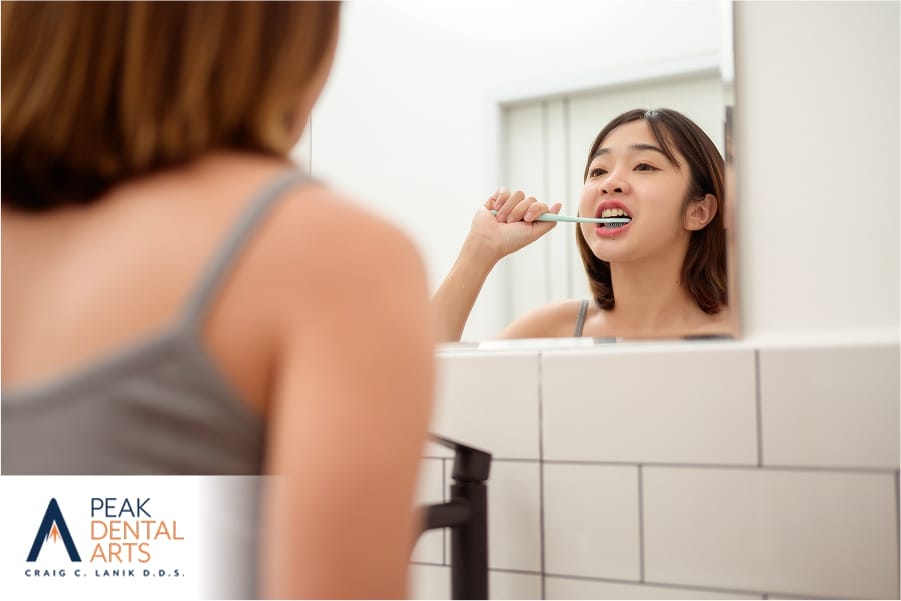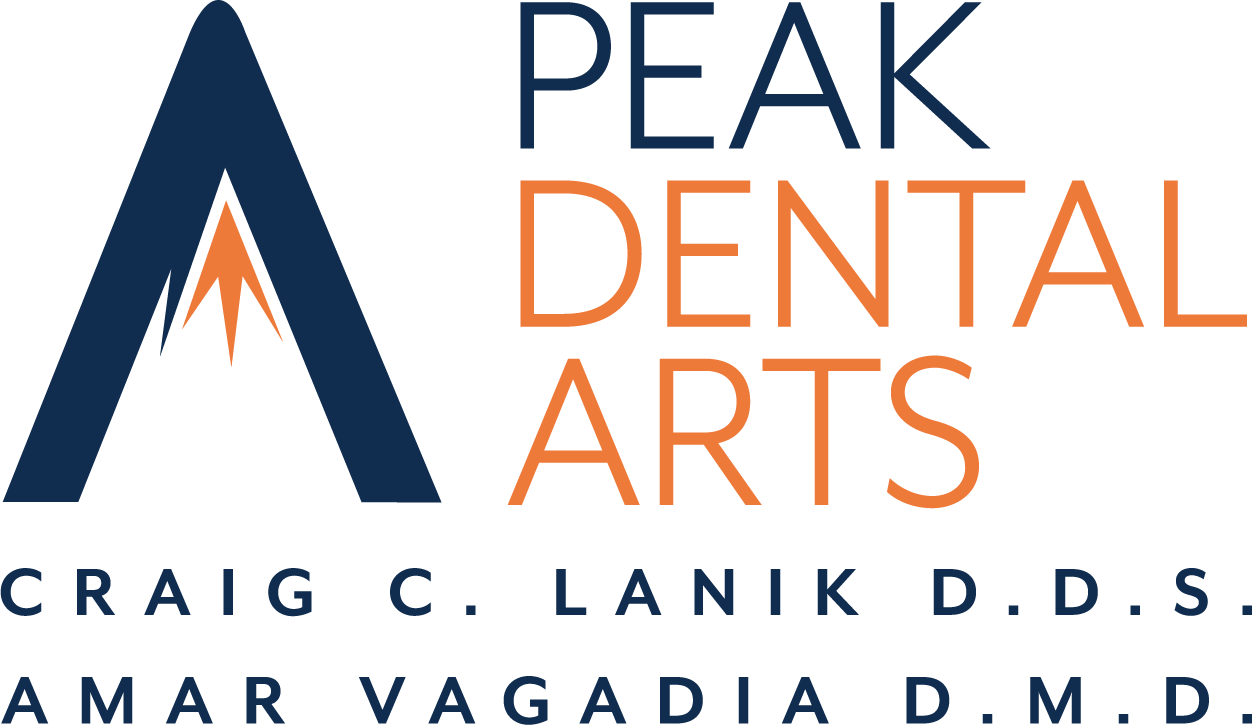Preventive dental care plays a key role in protecting your teeth, gums, and overall oral health. Following simple daily habits can reduce your risk of tooth decay, gum disease, and even oral cancer. Keeping your mouth healthy is much easier and less costly than treating dental problems after they’ve started.
Research shows that individuals who brush their teeth less than once daily face a 33% higher risk of gum disease. Further, maintaining 20 teeth or more at age 70 is linked to longevity, according to a 2015 study.
This guide outlines clear, effective preventive dental care tips. Use them to support healthy teeth and gums throughout your life.
What Preventive Dental Care Means
Preventive dental care includes the daily and professional steps that help stop oral health problems before they start. These practices reduce the risk of tooth decay, gum disease, tooth loss, and other common issues.
By managing small concerns early, preventative care often avoids the need for more complex and costly treatments later on. This approach not only supports long-term dental health but also lowers overall healthcare costs.
In fact, research shows that people who receive regular preventative dental services see notable annual savings and reduced medical expenses.
6 Dental Tips to Start Practicing Today
Incorporating these preventive dental care tips into your daily and professional care routines can dramatically reduce the risk of dental diseases while keeping your smile bright, healthy, and strong for years.

Focus on Good Oral Hygiene
Good oral hygiene is your first line of defense against most dental issues. Proper brushing and flossing prevent the buildup of plaque—a sticky film of bacteria that leads to tooth decay and gum disease.
Daily brushing removes food particles and plaque from the surfaces of your teeth. Flossing cleans between the teeth and below the gumline, where a toothbrush can’t reach.
To maintain good oral hygiene:
- Brush your teeth twice a day using fluoride toothpaste.
- Floss at least once a day.
- Replace your toothbrush every three months or sooner if the bristles are worn.
The American Dental Association recommends brushing for two full minutes, using a soft-bristled toothbrush, and aiming toward the gumline with gentle, circular motions.
Stick to Regular Dental Checkups
Even with careful brushing and flossing, plaque and tartar can still develop in hard-to-reach areas. Routine checkups allow your dentist to clean these areas and monitor for early signs of dental problems.
Most people benefit from dental visits every six months. Some may need more frequent care, especially if they have a history of gum disease or other chronic oral conditions. During each appointment, your dentist checks for tooth decay, gum inflammation, early signs of oral cancer, and other risk factors.
Early detection keeps treatment simpler and prevents bigger problems from developing. A professional teeth cleaning in Uniontown also removes hardened deposits that brushing alone can’t handle.
Related Article: How Often Should Your Teeth Be Cleaned?
Choose Foods That Strengthen, Not Harm, Your Teeth
What you eat has a direct impact on your dental health. Sugar feeds bacteria, which results in acid that wears away enamel. Frequent snacking—especially on candy, chips, or soft drinks—exposes your mouth to this acid throughout the day, increasing the chance of tooth decay.
In contrast, nutrient-dense foods can help you maintain healthy teeth and gums. Calcium, phosphorus, and vitamin D support strong enamel and bone.
Make these dietary habits part of your routine:
- Limit sugary snacks and drinks, especially between meals.
- Drink water throughout the day to help remove food particles.
- Include dairy products, leafy greens, and lean proteins in your diet.
- Avoid sticky foods that stay on your teeth for long periods.
- Chew sugar-free gum after meals to increase saliva flow.
Changing your eating habits often has a greater impact on your oral health than people expect. Small adjustments, over time, make it easier to prevent damage and maintain healthy teeth.
Avoid Tobacco and Be Alert to Warning Signs
Smoking and chewing tobacco increase your risk for chronic gum disease, tooth loss, and oral cancer. These products reduce blood flow to the gums and interfere with healing. Tobacco also stains teeth and causes bad breath that brushing can’t remove.
If you use tobacco, quitting is one of the best things you can do for your overall and oral health.
Let your dentist know if you notice signs such as mouth sores, spots that won’t heal, or long-lasting sensitivity. These could be symptoms of conditions that need medical attention.
Build Healthy Oral Habits with Children
Children learn routines early—making healthy dental care habits part of daily life helps them avoid problems later. Begin brushing your child’s teeth as soon as they appear. Use a soft-bristled brush and a small amount of fluoride toothpaste.
Schedule your child’s first dental visit no later than their first birthday. This early start allows the dentist to check for developmental issues and begin building positive associations with dental care.
Teach your child to brush and floss daily. Offer water instead of sugary juices and encourage snacks like carrot sticks, cheese, or apples. Kids who learn to value oral health from a young age are more likely to keep those habits as adults.
Recognize Common Oral Health Issues Early
Understanding what to watch for helps you act before dental problems become serious. Tooth pain, bleeding gums, persistent bad breath, and changes in the way your teeth fit together can all point to problems beneath the surface.
Tooth decay often starts without obvious symptoms but can develop into cavities or infections if untreated. Gum disease may begin as mild inflammation or redness, but can progress into periodontitis, leading to loose teeth or tooth loss. Oral cancer may first present as a sore spot that doesn’t heal.
Routine dental exams catch many of these problems in their earliest stages. Combine professional checkups with everyday preventive care to reduce your risks.
Related Article: Cavity Prevention 101: 10 Easy Tips for a Healthy Smile

Add These Daily Tips to Your Routine
Along with brushing, flossing, and dental checkups, a few daily habits can further protect your smile:
- Use dental products with fluoride. Look for the ADA Seal from the American Dental Association when choosing toothpaste or mouthwash.
- Avoid brushing immediately after consuming acidic drinks or foods. Wait at least 30 minutes to protect enamel.
- Clean your tongue each day using a scraper or the back of your toothbrush.
- Store your toothbrush upright and allow it to air dry to prevent bacterial growth.
Paying attention to these small details helps maintain your oral health and reduce your risk of future dental treatment.
A Strong Smile Starts with Simple Habits
Preventive dental care is about consistency and awareness. By brushing and flossing daily, eating a balanced diet, seeing your dentist regularly, and watching for early warning signs, you protect yourself from tooth decay, gum disease, and tooth loss.
Following these preventive dental care tips helps you stay ahead of potential problems and supports long-term dental health. One simple step at a time builds a strong foundation for a healthier mouth and a better quality of life.

